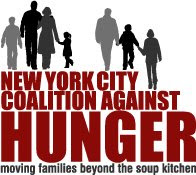
Food prices increased in May in the context of the on-going economic problems of rising prices coupled with lackluster growth.
Though the federal reserve has been using the word “inflation” with care in recent weeks, consumers are confronting the reality of inflation at gas pumps and grocery stores. Food prices increased by 0.8 percent in May, after remaining level in April. Pork and fresh fruit were among the products most affected by increases, with fruit and melons marking a 5.9 percent rise in prices since last month. Gas prices also shot up by 9.3 percent.
Food cost increases have been common news in recent months, with the price of a gallon of gas rivaling the cost of a gallon of milk. But recently economists have begun to address the inevitability of spreading inflation, as businesses are forced to recoup rising costs by raising prices for consumers. The Labor Department reported this week that the Producer Price Index, which measures costs for manufacturers, rose by 1.4 percent in May, marking the biggest increase in producer prices since November of last year.
Of course, the problem of rapidly increasing commodity foods is a global problem. In a meeting of the “Group of 8” in Japan on Saturday, finance ministers from the world’s richest nations warned that higher prices of oil and other commodities (including food) poses a real threat to the world economy.
Especially for low-income consumers, the on-going increase of the cost of goods poses a threat of continued inflation for food and other necessary consumer goods. Despite the fact that the Farm Bill raised the allotment for food stamps recipients, the continued increase in the price – and cost – of consumer goods forebodes a difficult future for low-income Americans who do not have the safety net of medical coverage and more comprehensive social services available to low-income individuals in other industrialized countries.
 Food prices increased in May in the context of the on-going economic problems of rising prices coupled with lackluster growth.
Food prices increased in May in the context of the on-going economic problems of rising prices coupled with lackluster growth. 
2 comments:
The fact that the United States hasn't embraced and instituted health care across the board long before now, is unfathomable to me but what's worse are the selfish-minded arguments against such a policy change.
Agreed. Not only do we need better policies to directly increase food access, but also comprehensive, guaranteed medical services to ensure that the public remains both healthy and able to afford nutritious food.
Post a Comment